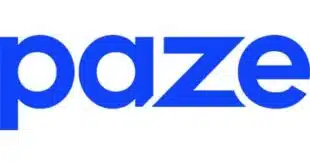By John Stewart
@DTPaymentNews
In an early glimpse of how U.S. businesses are using faster payments, the governing body for the automated clearing house issued survey results Tuesday showing that 90% of respondents at surveyed financial institutions report same-day ACH origination volume at or above what they expected.
The same survey indicated no rise in fraud losses owing to same-day clearing, according to Herndon, Va.-based NACHA, which in December and January surveyed 23 financial institutions representing 63% of total ACH network origination volume (though the number of respondents to each question varied). Same-day processing for ACH credits commenced Sept. 23. A previous report from NACHA indicated the network had processed more than 13 million same-day transactions by Dec. 31 .
Some 35% of the respondents reported their same-day origination volume was higher than they expected, while 55% said it was meeting expectations. On the receiving side, 22% said same-day volume was higher than forecast, with 61% reporting volume level with expectations. Under NACHA rules, receiving institutions are required to process same-day payments. Starting Sept. 15, ACH debits will become eligible for same-day processing.
The canvass also found a variety of purposes for same-day processing. While 95% of respondents said businesses are using faster clearing for emergency, or last-minute, payroll payments, 68% said clients were using it to make one-time payments. And 58% reported businesses using same-day ACH for regularly scheduled payments.
Observers are encouraged by the survey results but caution it’s still early for the same-day program. They add it’s hard to know how impressive exceeding expectations is without know what those expectations are.
“To say that a high percentage of originators and receivers saw more activity than they expected isn’t particularly illuminating unless we understand the basis for their predictions,” notes Sarah Grotta, director of the debit advisory service at Maynard, Mass.-based research firm Mercator Advisory Group. “Particularly for [receiving institutions], how could they predict the number of [same-day] transactions that might be headed their way?”
Similarly, Grotta and Nancy Atkinson, a senior analyst at Aite Group LLC, a Boston-based research firm, caution that while the fraud result is encouraging, the picture could darken soon. “I am glad to hear the fraud has not proven to be an issue immediately, however, there will be fraud,” warns Grotta. “Same-day can be more attractive [to criminals] since a manual review of suspicious transactions is simply not possible provided the processing timeframes. We are in the early stages of same-day’s evolution, so it may not have the attention of criminals quite yet.”
Another factor will be the addition of ACH debits late this summer to the same-day transaction flow. “It is especially encouraging that fraud has not been a concern so far, indicating that authorization processes are generally good,” Atkinson says. “I suspect that in the direct debit phase of same-day ACH there will be more fraud concerns.”





